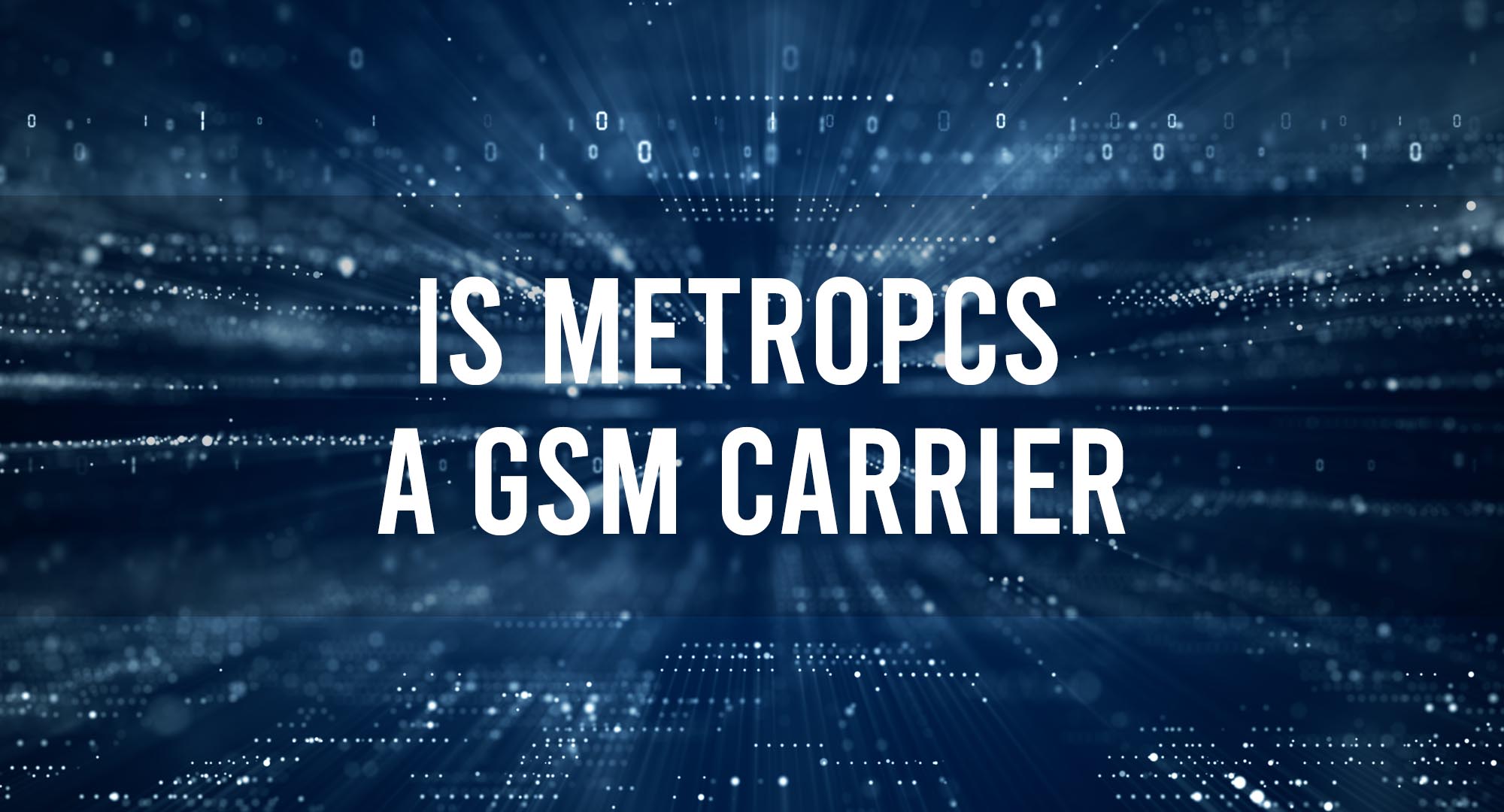In the world of mobile communications, there are two primary technologies that reign supreme: GSM (Global System for Mobile Communications) and CDMA (Code Division Multiple Access). MetroPCS, now known as Metro by T-Mobile, is a carrier that has made a significant impact in the industry. But the question remains, is MetroPCS a GSM carrier? The short answer is yes. MetroPCS operates on T-Mobile’s GSM network.
The Role of GSM in MetroPCS’s Network Structure
Table of Contents
MetroPCS initially used CDMA technology, but after its merger with T-Mobile in 2013, it shifted to GSM. GSM plays a crucial role in MetroPCS’s network structure. It provides the underlying infrastructure, defining how network operations like call routing and packet data transfer occur. By adopting GSM, MetroPCS has integrated its services with a technology that is globally recognized and has widespread coverage.
Decoding the Connection: MetroPCS and GSM Compatibility
MetroPCS, now known as Metro by T-Mobile, operates on T-Mobile’s GSM network. So, it’s crucial to understand the compatibility aspect. GSM networks use SIM cards, which store network-specific information like your phone number and data plan details. Therefore, any GSM-compatible phone that accepts a SIM card can theoretically operate on MetroPCS’s network. However, for the best performance, it’s always recommended to use a phone specifically designed or approved for MetroPCS or T-Mobile.
Is Your MetroPCS Phone GSM-Capable?
With MetroPCS transitioning to Metro by T-Mobile and operating on a GSM network, the phones provided by MetroPCS are indeed GSM-capable. If you’re uncertain, you can check your phone’s specifications or the device’s manual. Another surefire way is to see if your phone has a SIM card slot. Remember, no SIM card slot, no GSM compatibility. If you’re still unsure, you can always get in touch with MetroPCS or consult their website for a list of compatible devices.
How MetroPCS Leverages GSM Technology for Superior Connectivity?
MetroPCS leverages GSM technology to offer superior connectivity. GSM’s widespread adoption and continuous advancement have allowed MetroPCS to deliver high-quality voice services and fast data speeds. With GSM’s data handling capabilities, MetroPCS provides services like HD Voice and Wi-Fi Calling. Plus, the fact that GSM is used extensively worldwide means MetroPCS users have broad international roaming capabilities.
The Evolution of MetroPCS: From CDMA to GSM
The story of MetroPCS is a fascinating one. Originally, MetroPCS used CDMA technology, much like Verizon and Sprint. But after merging with T-Mobile in 2013, the company had to adapt to the GSM technology used by T-Mobile. This transition required a massive network overhaul and also meant that customers had to switch to GSM-compatible phones. But the move wasn’t all disruption and inconvenience. By switching to GSM, MetroPCS could offer its customers more features and better service quality, backed by T-Mobile’s more extensive network coverage.
The Impact of GSM on MetroPCS’s Service Quality
The shift to GSM has had a significant impact on the service quality of MetroPCS. First, GSM’s extensive international acceptance means customers can use their MetroPCS phones in many more places around the globe. Second, with GSM’s advanced data handling capabilities, MetroPCS can offer high-speed internet access, leading to improved user experiences for streaming and browsing. Lastly, the switch opened up a broader range of device options for customers, since many phone manufacturers produce GSM-compatible phones.
In a nutshell, MetroPCS’s decision to switch from CDMA to GSM has been a game-changer, both for the company and its users. The benefits of wider coverage, better call quality, and high-speed data make GSM a clear winner for MetroPCS. As a user, you gain from improved services and wider device compatibility. In the end, in the sea of tech evolution, GSM has been a favorable tide for MetroPCS.
Can I use my MetroPCS phone on other GSM networks?
Yes, you can use your MetroPCS phone on other GSM networks, such as AT&T and T-Mobile, provided it is unlocked.
Did MetroPCS always use GSM technology?
No, MetroPCS initially operated on a CDMA-based network. However, after its merger with T-Mobile in 2013, the carrier transitioned to a GSM-based network.
Does the use of GSM technology improve MetroPCS’s service quality?
Yes, the use of GSM technology has significantly improved MetroPCS’s service quality. The transition to a GSM-based network has resulted in improved coverage, faster data speeds, and more reliable connections for MetroPCS users.
Conclusion
The relationship between MetroPCS and GSM is a testament to the evolution of mobile communication technology. The transition from CDMA to GSM has not only improved the service quality of MetroPCS but also provided its users with greater flexibility and convenience. As GSM continues to evolve, we can expect MetroPCS to continue leveraging this technology to provide superior connectivity to its users.

Timothy is a tech enthusiast and has been working in the industry for the past 10 years. He has a vast knowledge when comes to technology and likes to help people with this knowledge.
